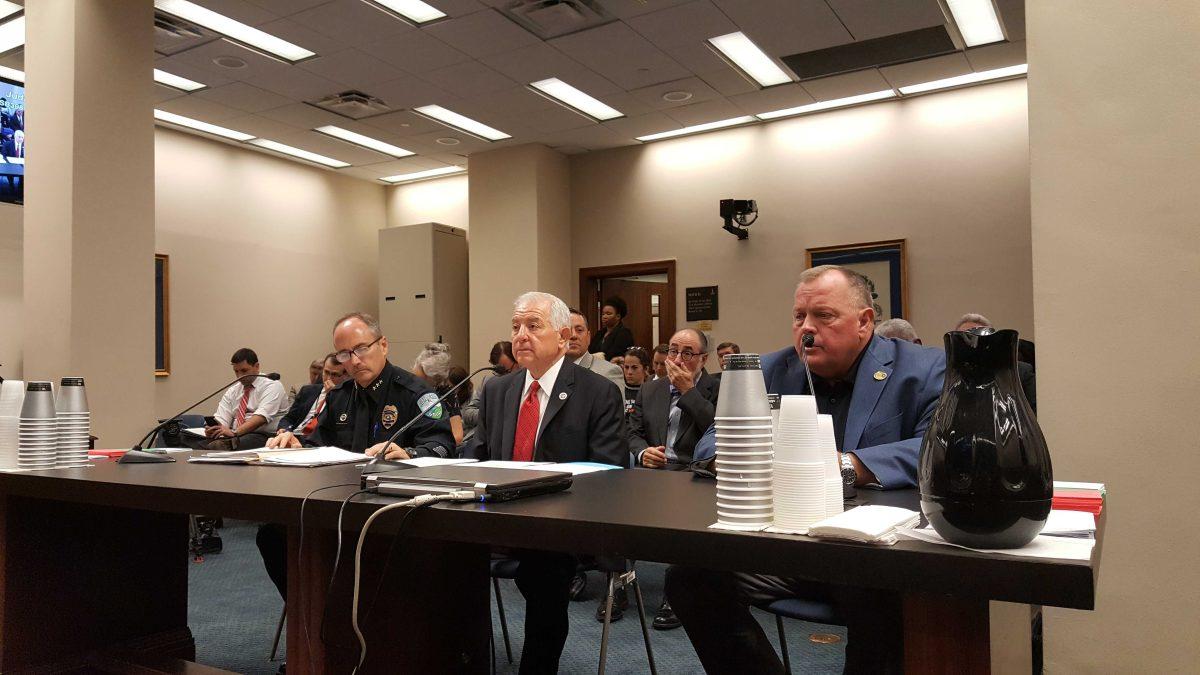Committee members and media representatives Tuesday convinced Sen. Ronnie Johns, R-Lake Charles, to amend his Senate Bill 398 which, in its original form, would effectively exempt all body camera footage from public records requests.
The committee plans to hear the bill again next week in when opponents hope it will contain specific exemptions rather than Johns’ blanket protection.
The Louisiana Press Association, represented by First Amendment Attorney Scott Sternberg of New Orleans, opposed the bill, saying the wording is too broad and would require concerned individuals or the news media to sue to get any body camera footage instead of negotiating amicably with police.
Johns said both law enforcement and those who hold them accountable understand the privacy concerns that motivated the bill. He said he would likely use Florida’s law as a guide, where private residences, medical facilities and other private areas are specifically exempted, instead of the blanket exemption currently in SB 398.
Alexandria Police Chief Loren Lambert said the bill would protect the privacy of individuals who are in embarrassing or compromising public situations. He gave the examples of a young woman who passed out in the bathroom of a movie theater because of a diabetic condition and of a domestic dispute among family that does not result in criminal action.
Sen. Karen Carter Peterson, D-New Orleans, raised concerns about transparency of police departments. She brought up the recent incident at Baton Rouge Earth Day where a bystander’s video appeared to show a police officer punching a 16-year-old whose hands are behind his back.
“Police officers make mistakes, and they have bad behavior at times,” Peterson said. “In 2016 there’s a reason we ask for body cameras.”
Thirteen states currently have laws that impact how much access the public has to police body camera footage, according to the Reporters Committee for Freedom of the Press. In Texas, body camera footage is legally prohibited from being tampered with or released to the public before “all criminal matters are adjudicated,” unless the release would serve a police interest.
Sen. Norby Chabert, R-Houma, asked, hypothetically, whether the body camera footage of a crawfish boil at his house where there was a noise complaint could be requested under current law.
Sternberg noted that while there is no provision in the Louisiana public records law, Chabert might still have a case for privacy. Sternberg said there is a judicially recognized exception to the public records law for people who have a reasonable expectation of privacy.
Sen. Johns amends SB 398 after facing criticism, concerns
April 19, 2016
From left, Alexandria Police Chief Loren Lambert, Sen. Ronnie Johns, R-Lake Charles, and Lake Charles Police Chief Donald Dixon testify before Senate Judiciary B Committee Tuesday in support of exempting all body camera footage from public records requests. Johns, the bill’s sponsor, agreed to include less all-encompassing language before resubmitting it.
More to Discover








